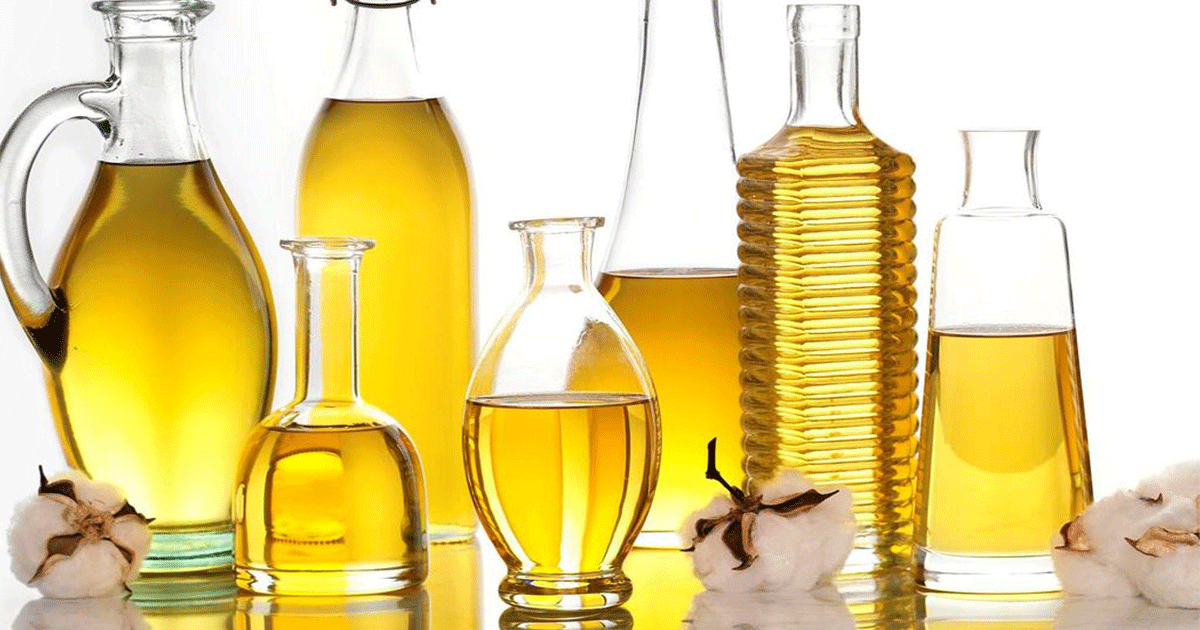9 OF THE HEALTHIEST COOKING OILS
BY CHRISTINE BARAKAT, REGISTERED DIETITIAN, DIET BOX

These days, the shelf of the cooking-oil section of the supermarket is a crowded spot, which is confusing for consumers wondering which oil may be the healthiest to use.
In fact that depends largely on the type of cooking you’re doing. An oil’s smoke point, which is the point when oil starts burning and smoking, is one of the most important things to consider. If you heat oil past its smoke point, it not only harms the flavor, but many of the nutrients in the oil degrade—and the oil will release harmful compounds called free radicals.
To help you select some of the healthiest oils while still pleasing your taste buds, here is a rundown of 9 cooking oils:
- OLIVE OIL
Nutrition and cooking experts agree that one of the most versatile and healthy oils to cook with and eat is olive oil, as long as it’s extra virgin. An “extra virgin” label means that the olive oil is not refined, and therefore of high quality. Extra virgin olive oil contains a large amount of monounsaturated fats and some polyunsaturated fatty acids; many studies have linked it to better heart health. Olive oil has a relatively lower smoke point compared to other oils, so it’s best for low and medium-heat cooking.
The Mediterranean Diet has been linked to weight loss and a reduction in disease risk, plus a boost in longevity overall. Olive oil, known for its role in the Mediterranean Diet, is abundant in healthy monounsaturated fatty acids and antioxidants.
Best for: Salad dressings and sautéing
- CANOLA OIL
Canola oil is derived from rapeseed, a flowering plant, and contains a good amount of monounsaturated fats and a decent amount of polyunsaturated fats. Of all vegetable oils, canola oil tends to have the least amount of saturated fats. It has a high smoke point, which means it can be helpful for high-heat cooking. This budget-friendly choice is low in saturated fat and relatively high in monounsaturated fat. The only issue is that canola oil tends to be highly processed, so looking for cold-pressed and a good quality brand is key.
Best For: Sautéing, frying, baking
- AVOCADO OIL
Avocado oil is a great choice. It’s unrefined like extra virgin olive oil, but it has a higher smoking point, which means it can be used to cook at higher heat and is great for stir-fry. It doesn’t have much flavor, which makes it a good option for cooking. Avocado oil contains both monounsaturated and polyunsaturated fatty acids (it has one of the highest monounsaturated fat contents among cooking oils) as well as vitamin E. One downside is that it tends to be more expensive.
Best for: Frying, roasting, baked goods
- SUNFLOWER OIL
Light in color and neutral in flavor, sunflower oil has one of the highest concentrations of polyunsaturated fat (69 %) among cooking oils. It supplies some monounsaturated fat (20 %) and is low in saturated fat (11 %), making it an overall heart-healthy option. Sunflower oil is a good all-purpose oil because it can withstand high cooking temperatures.
Best for: Frying and roasting
- PEANUT OIL
Nut oils, like peanut, can be fun to experiment with in the kitchen, especially since there are so many different types. Peanut oil has one of the highest monounsaturated fat contents among cooking oils. It’s usually flavorful with a nutty taste and smell, and cooks well at high heat.
Best for: Stir fry and sautéing
- WALNUT OIL
This oil has a low smoke point, so it’s not good for cooking, but it can be used in plenty of other ways. The very thing that make walnuts such a nutrient powerhouse as the only nut with an excellent source of plant omega-3s (ALA) make its oil an excellent finishing ingredient to drizzle and pour on completed dishes.
Best for: Salad dressings and drizzling
- FLAXSEED OIL
Flaxseed oil is a great vegan source of healthy omega-3 fatty acids. Diets rich in omega-3 ALA, found in flaxseed oil, have been linked to lower lipid levels and reduced blood pressure in individuals with high cholesterol. Abundant in monounsaturated fats, flaxseed oil requires refrigeration. Flaxseed oil is high in omega 3s and has a very low smoke point, which means it also shouldn’t be used for cooking.
Best for: Salad dressings and drizzling
- SESAME OIL
This oil is often used for its potent flavor; a little goes a long way. It contains both monounsaturated and polyunsaturated fatty acids, though it’s not especially high in other nutrients. It has a higher smoke point and can be used for high-heat recipes.
Best for: Sautéing, stir fry, frying
- COCONUT OIL
High saturated fat content; unlike other plant-based oils, coconut oil is primarily a saturated fat. Not everyone agrees that such a concentrated source of saturated fat is a no-go for health, but some experts, including the American Heart Association, argue that replacing foods that are high in saturated fat with healthier options can lower blood cholesterol levels and improve lipid profiles. Still, science is starting to suggest that not all saturated fats are bad for you.
Therefore, saturated fats can be a healthier oil to use when you’re cooking at a very high temperature or frying food because they are more stable at high heat. This means that they are less likely to break down and smoke.
Best for: Baking and sautéing
IN SUMMERY
Oils that contain lower levels of linoleic acid, such as olive and canola oil, are better for frying.
Polyunsaturated oils, such as corn, sunflower, and safflower, are best for using in dressings rather than cooking with.






